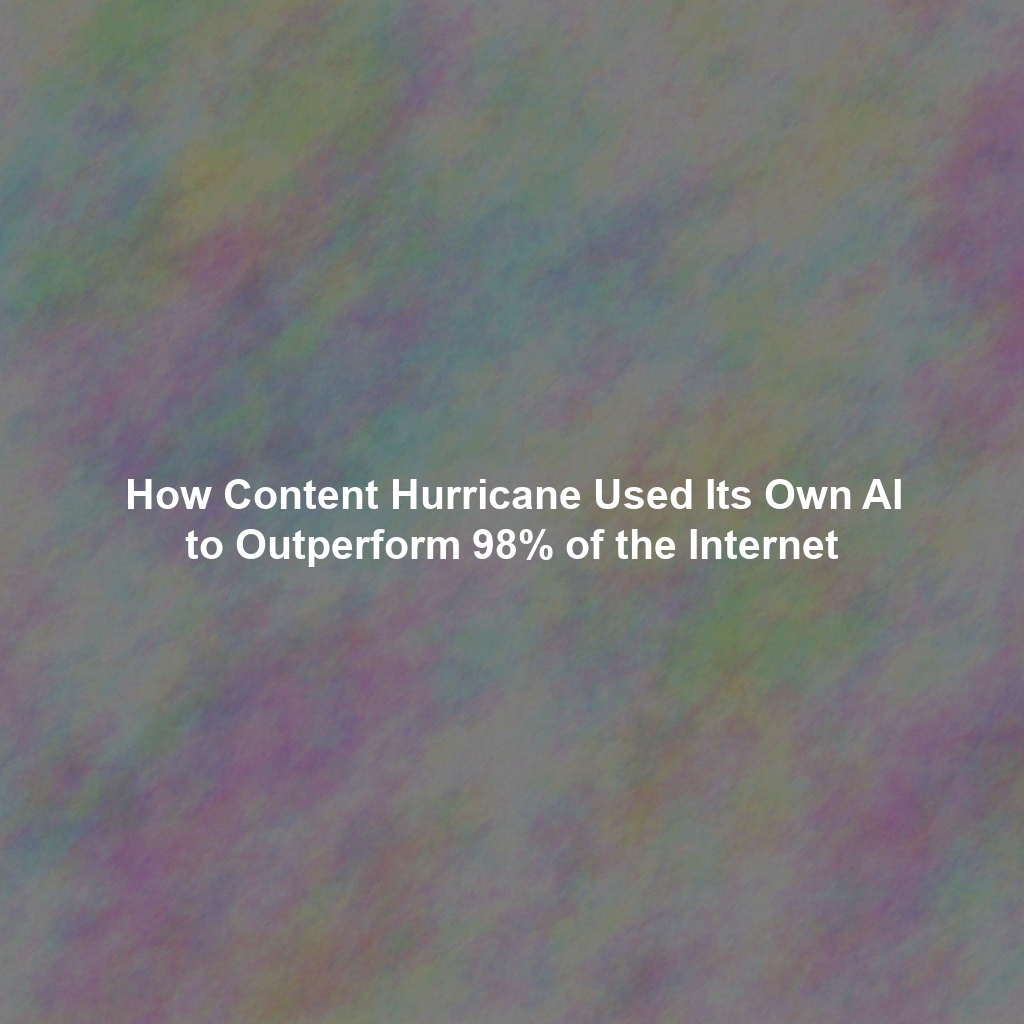Google’s Search Generative Experience (SGE) is rapidly changing how people find information online. By 2025, it’s expected to be a dominant force in search, using AI to summarize and present information directly within the search results. This means that simply ranking high for keywords is no longer enough. To thrive in this new landscape, your blog needs to demonstrate Expertise, Experience, Authoritativeness, and Trustworthiness (E-E-A-T) to Google’s AI algorithms. This article dives deep into how you can optimize your blog strategy for SGE success by focusing on E-E-A-T.
Understanding E-E-A-T in the Age of SGE
E-E-A-T has always been important for SEO, but SGE amplifies its significance. Google’s AI is designed to identify and prioritize content from sources it deems credible. Without a strong E-E-A-T profile, your blog risks being overlooked by SGE, even if your content is factually accurate. Think of it this way: SGE wants to offer its users the *best* possible answer, and that includes the most trustworthy and authoritative source.
Expertise: Demonstrating Your Knowledge
Expertise refers to the specialized knowledge or skill you possess in your blog’s niche. To showcase expertise:
- Focus on Niche Topics: Avoid being a generalist. Specialize in a specific area within your field and become a go-to resource for that topic.
- Provide In-Depth Content: Go beyond surface-level information. Offer detailed analyses, original research, and unique perspectives.
- Back Up Claims with Evidence: Support your statements with data, research studies, and credible sources (more on that later).
Real-world Example: Instead of writing a general blog post about “Digital Marketing,” focus on “Advanced SEO Strategies for E-commerce Websites.” This demonstrates a deeper understanding of a specific area within digital marketing.
Experience: Sharing Your Real-World Insights
Experience is about demonstrating that you’ve not only studied a subject but also actively practiced it. This is incredibly valuable, especially in YMYL (Your Money or Your Life) topics. To showcase your experience:
- Share Case Studies: Document your successes and failures with real-world projects. Explain the challenges you faced and the solutions you implemented.
- Include Personal Anecdotes: Share your own experiences related to the topic. This helps build a connection with your audience and adds a human touch.
- Showcase Your Work: If applicable, display examples of your work, such as client testimonials, project portfolios, or published articles.
Real-world Example: A financial advisor writing about retirement planning should share examples of successful retirement strategies they’ve implemented for their clients, while maintaining client confidentiality, of course.
Authoritativeness: Establishing Your Reputation
Authoritativeness refers to your blog’s and your personal reputation within your industry. To build authoritativeness:
- Get Featured on Reputable Websites: Guest blogging on authoritative websites in your niche can significantly boost your credibility.
- Earn Backlinks from High-Quality Sources: Focus on acquiring backlinks from websites with high domain authority and relevant content.
- Engage with Industry Leaders: Interact with other experts in your field, participate in online discussions, and contribute to industry events.
Real-world Example: A technology blogger who is regularly quoted by major news outlets like TechCrunch or Wired is perceived as more authoritative than someone who only publishes on their own blog.
Trustworthiness: Building a Foundation of Honesty
Trustworthiness is the foundation of E-E-A-T. It’s about being honest, transparent, and reliable. To establish trustworthiness:
- Cite Reputable Sources: Always back up your claims with credible sources, such as academic journals, government reports, and industry publications. Link to these sources directly within your content.
- Provide Accurate Information: Double-check your facts before publishing. Avoid spreading misinformation or unsubstantiated claims.
- Be Transparent About Your Authors: Clearly identify the authors of your blog posts and provide detailed author bios that highlight their expertise and experience.
- Include a Clear Contact Page: Make it easy for readers to contact you with questions, feedback, or concerns.
- Implement a Clear Privacy Policy: Be upfront about how you collect and use user data.
- Moderate Comments and Address Concerns: Actively manage your blog’s comment section and address any concerns or criticisms in a professional and timely manner. This shows you are engaged and value your audience’s input.
Real-world Example: A health and wellness blog should cite studies from reputable medical journals and organizations like the CDC or WHO. It should also have a medical disclaimer stating that the information provided is for informational purposes only and not a substitute for professional medical advice.
Optimizing Your Blog for SGE in 2025: Practical Steps
- Author Bios: Create detailed author bios that highlight their qualifications, experience, and affiliations. Link to their social media profiles and other relevant websites.
- Citation Management: Implement a consistent citation style and use tools to manage your sources effectively.
- Content Audits: Regularly audit your existing content to ensure it’s accurate, up-to-date, and reflects your current expertise.
- Community Building: Foster a community around your blog by encouraging comments, hosting online discussions, and engaging with your audience on social media.
- Schema Markup: Use schema markup to provide Google’s AI with additional context about your content and authors.
Conclusion
As SGE continues to evolve, E-E-A-T will become even more critical for blog success. By focusing on building expertise, sharing your experiences, establishing authoritativeness, and fostering trust, you can position your blog for success in the AI-powered search landscape of 2025 and beyond. Don’t just aim to rank; aim to be the most credible and trustworthy source of information in your niche. The future of search is about quality, not just keywords.




Leave a Reply